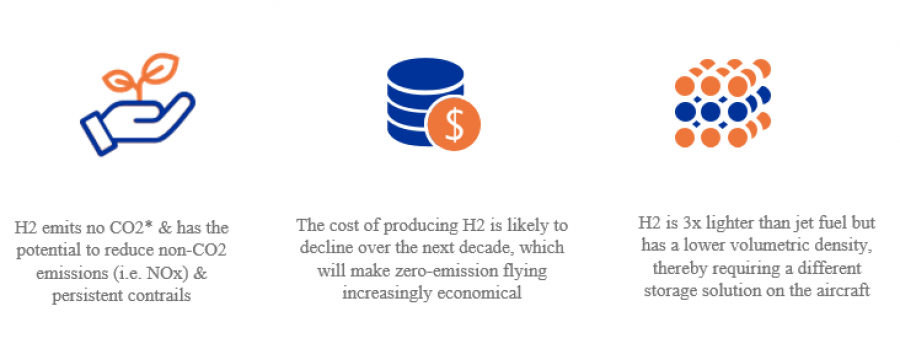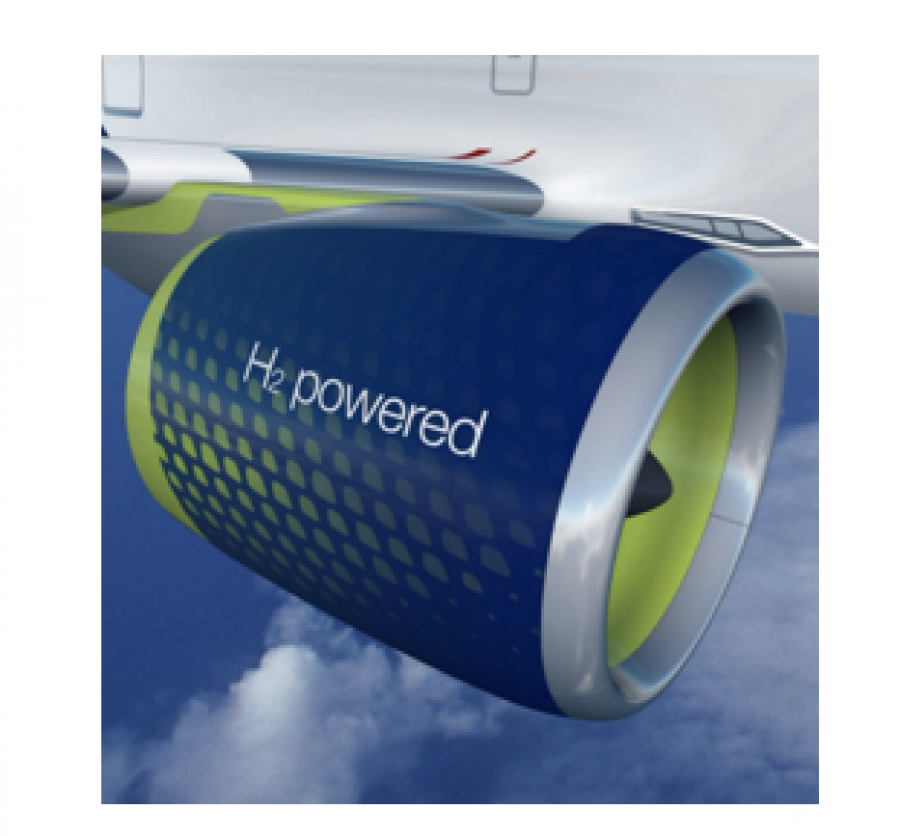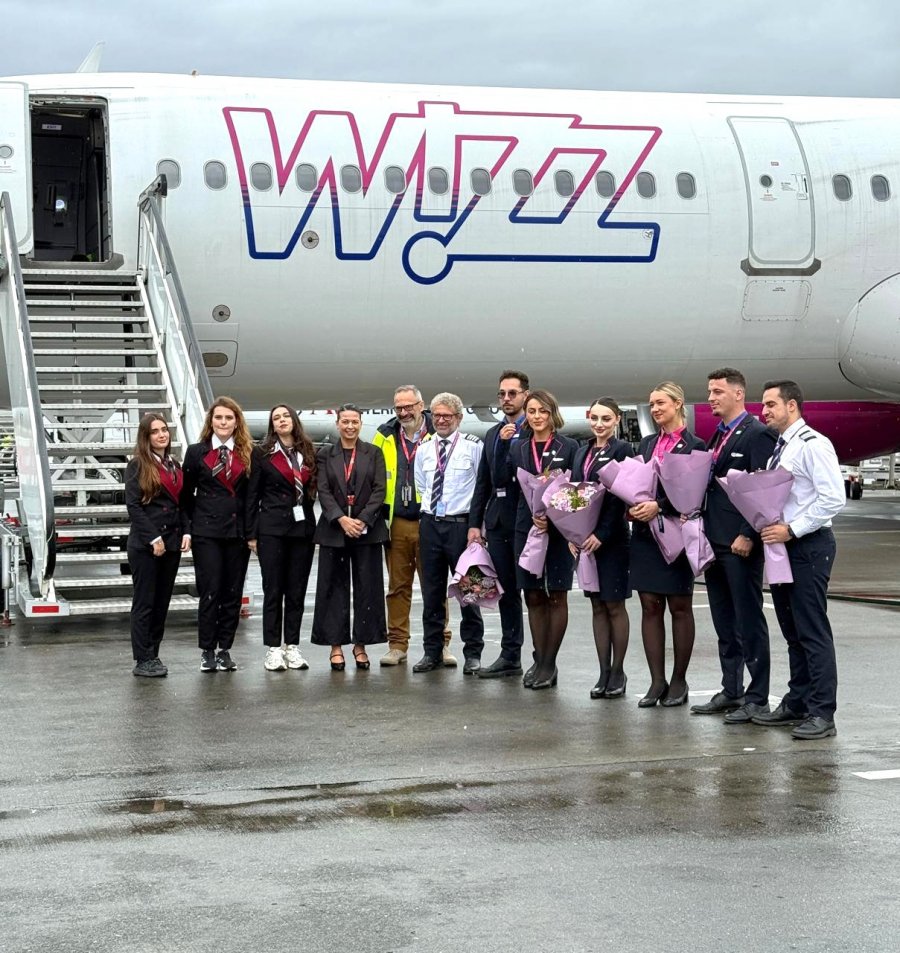Why Hydrogen?
The aviation industry is under increasing pressure to reduce its carbon footprint as part of global efforts to combat climate change. Hydrogen, with its zero-carbon emissions during combustion, represents a major leap forward in achieving these goals. The use of hydrogen fuel could drastically reduce the aviation sector's greenhouse gas emissions, making it a critical component of the industry's transition to a more sustainable future.
Moreover, hydrogen has a high energy density, meaning it can provide a substantial amount of energy while being lightweight, a crucial factor in aircraft design. As a result, hydrogen-powered aircraft could potentially offer longer ranges and greater efficiency compared to battery-electric alternatives, making it a versatile solution for various types of aircraft, from short-haul regional jets to long-haul international flights.

H2 Technology for Aviation
The application of hydrogen technology in aviation involves the use of hydrogen either in fuel cells or as a direct combustion fuel.
- Hydrogen Fuel Cells: In this approach, hydrogen is combined with oxygen in a fuel cell to produce electricity, which then powers electric motors that drive the aircraft's propellers or fans. This method is particularly attractive for smaller aircraft and urban air mobility solutions where quiet, emission-free operation is a priority.
- Hydrogen Combustion Engines: Hydrogen can also be burned directly in modified jet engines, providing a familiar propulsion method for larger aircraft. This approach could allow for the use of existing engine designs with adaptations, potentially speeding up the adoption of hydrogen technology in commercial aviation.

Challenges to H2 Adoption
While the potential benefits of hydrogen in aviation are significant, there are several challenges that need to be addressed to make this technology viable at scale:
- Infrastructure: Developing the infrastructure for hydrogen production, storage, and refueling at airports worldwide is a significant undertaking. Hydrogen needs to be stored at very low temperatures or high pressures, requiring specialized equipment and facilities.
- Energy Production: Currently, most hydrogen is produced from natural gas in a process that emits CO2. For hydrogen to truly be a zero-carbon fuel, it must be produced through electrolysis using renewable energy sources. Scaling up this green hydrogen production is a key challenge.
- Aircraft Design: Hydrogen’s lower energy density per volume compared to conventional jet fuel means that aircraft will need to be redesigned to accommodate larger fuel tanks. This could affect aircraft aerodynamics, weight distribution, and overall design.
- Cost: The cost of producing, storing, and distributing hydrogen is currently higher than that of conventional aviation fuels. Reducing these costs through technological advancements and economies of scale will be essential for hydrogen to become competitive.

















